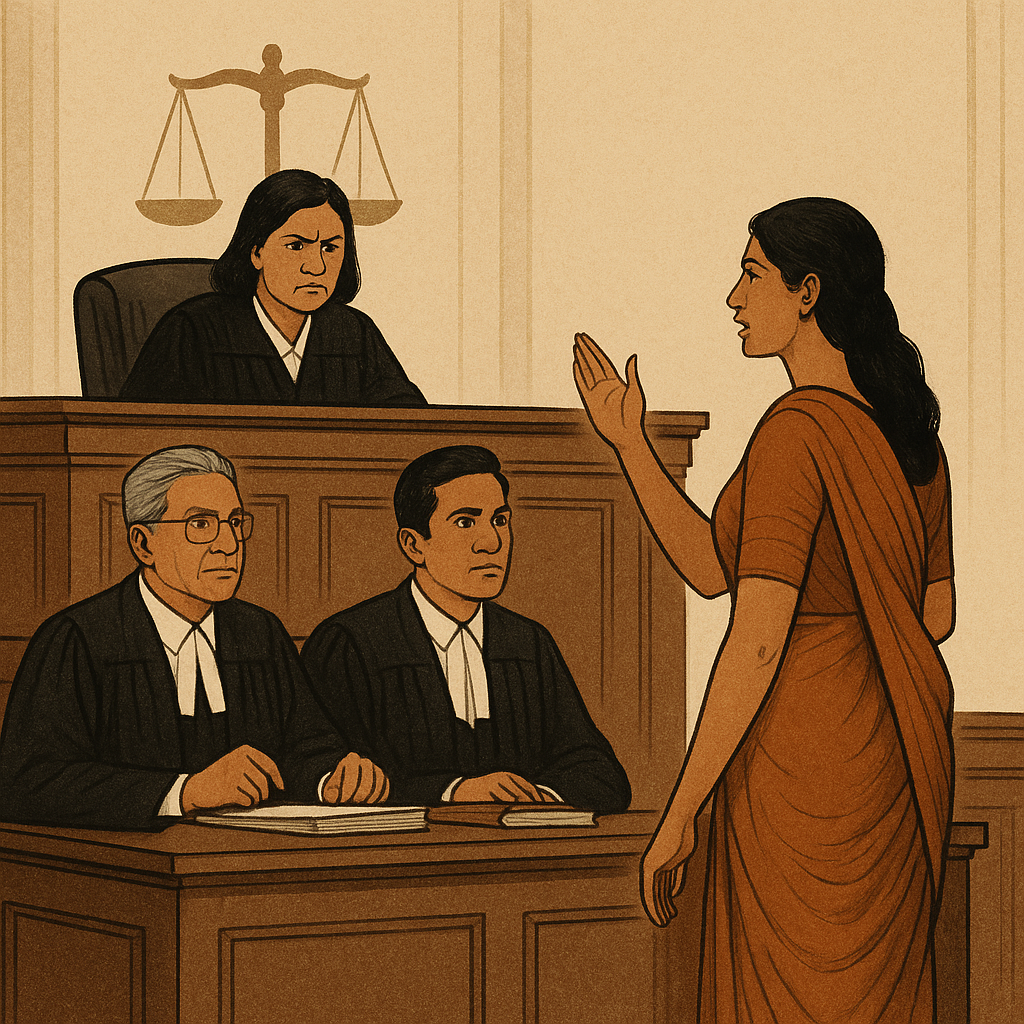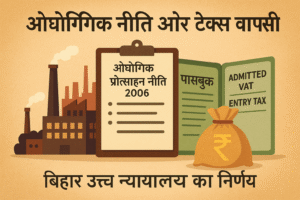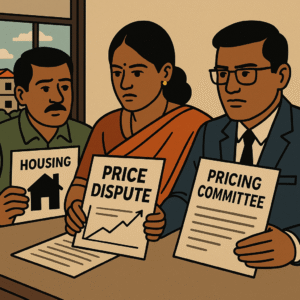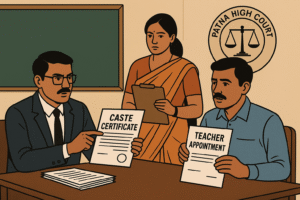Simplified Explanation of the Judgment
In a judgment dated November 2, 2021, the Patna High Court set aside the indefinite blacklisting of a drug supplier firm by the Nalanda Medical College and Hospital (NMCH), Patna. The Court found that the blacklisting was imposed without following the principles of natural justice and in contradiction to established legal precedents.
The petitioner, a proprietorship firm engaged in the supply of medicines, was awarded supply orders by the hospital administration. However, due to a shortage of raw materials, the petitioner was unable to fulfill some of the supply obligations. Subsequently, the hospital authorities issued a series of communications asking the petitioner to supply the medicines. According to the State, these were show cause notices; however, the petitioner maintained they were merely reminders and did not indicate any blacklisting action.
Ultimately, on June 4, 2021, the Superintendent of NMCH issued an order blacklisting the petitioner in perpetuity — meaning permanently — from participating in future tenders or contracts with the hospital.
The petitioner challenged this action in the High Court, raising two main issues:
- No formal show cause notice was issued before blacklisting.
- The blacklisting was indefinite, which is contrary to the law.
The petitioner relied on the Supreme Court judgment in Kulja Industries Ltd. v. Western Telecom Project, BSNL (2014) 14 SCC 731, which held that:
- Blacklisting is a serious action and must comply with the principles of natural justice.
- Any debarment or blacklisting must be for a reasonable and specific period, not indefinite or perpetual.
- A party must be given an opportunity to explain before such punitive action is taken.
The Court agreed with the petitioner’s arguments. It held that:
- Even if the notices sent by the hospital were intended to be show cause notices, none of them referred to the possibility of blacklisting.
- Blacklisting without any formal notice or opportunity of hearing violates basic tenets of fair play and natural justice.
- An indefinite blacklisting order is dehors (outside) the law and cannot be sustained.
The Court therefore quashed the blacklisting order dated 4.6.2021. However, it granted liberty to the authorities to initiate a fresh proceeding in accordance with law, after giving the petitioner due notice and opportunity to be heard.
Significance or Implication of the Judgment
This judgment is vital in safeguarding the rights of contractors and suppliers, especially small and medium businesses dealing with government institutions. It reaffirms the legal principle that:
- Administrative decisions must follow natural justice, especially when they have civil consequences.
- Blacklisting or debarment must be fair, proportionate, and preceded by notice and hearing.
The ruling discourages arbitrary or excessive punishment and emphasizes accountability in public procurement processes. It sends a strong signal that procedural fairness is non-negotiable, even when a supplier defaults.
Legal Issue(s) Decided and the Court’s Decision with Reasoning
- Can a contractor be blacklisted indefinitely?
❌ No. The Court held that indefinite blacklisting is contrary to the law laid down by the Supreme Court in Kulja Industries Ltd. Even serious contractual breaches cannot justify permanent blacklisting. - Is a formal show cause notice necessary before blacklisting?
✔ Yes. The Court observed that none of the communications referred to blacklisting, hence the petitioner was denied an opportunity to respond specifically to the proposed punitive action. - Was the blacklisting order legally valid?
❌ No. The Court found that the blacklisting was not only procedurally flawed but also excessive and disproportionate. - What remedy did the Court grant?
✔ The Court quashed the blacklisting order and allowed the writ petition. It allowed the authorities to re-initiate proceedings afresh if they wished to, but only by following due process.
Judgments Referred by Parties
- Kulja Industries Ltd. v. Western Telecom Project, BSNL, (2014) 14 SCC 731
- Erusian Equipment & Chemicals Ltd. v. State of West Bengal, SCC p.75, para 20
- Southern Painters v. Fertilizers & Chemicals Travancore Ltd.
- Patel Engg. Ltd. v. Union of India
- UMC Technologies Pvt. Ltd. v. FCI, (2021) 2 SCC 551
Judgments Relied Upon or Cited by Court
- Kulja Industries Ltd. v. Western Telecom Project, BSNL, (2014) 14 SCC 731
- Erusian Equipment & Chemicals Ltd. v. State of West Bengal
- UMC Technologies Pvt. Ltd. v. FCI, (2021) 2 SCC 551
Case Title
Abha Chaudhary v. State of Bihar & Ors.
Case Number
CWJC No. 13294 of 2021
Coram and Names of Judges
Hon’ble Mr. Justice Mohit Kumar Shah
Names of Advocates and who they appeared for
- For the Petitioner:
Mr. Srinandan Singh, Sr. Advocate
Ms. Prakritita Sharma, Advocate - For the Respondents (State of Bihar):
Mr. Mujtabaul Haque (GP-12)
Mr. Vasant Vikas, AC to GP-12
Link to Judgment
If you found this explanation helpful and wish to stay informed about how legal developments may affect your rights in Bihar, you may consider following Samvida Law Associates for more updates.








